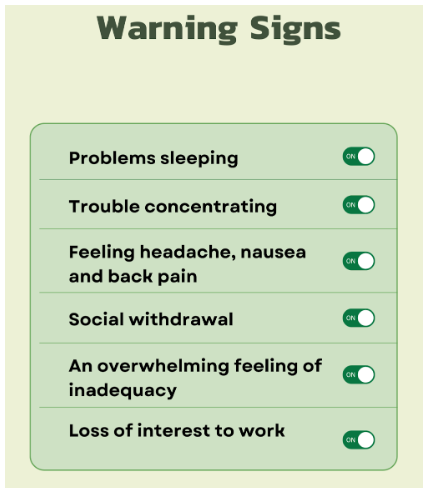These days, stress related to work is quite common and it leads to several concomitant disorders. It is a prolonged process and it goes on and on. There are other factors of stress such as on the personal front, or health factors that altogether hamper the workflow professionally. In fact, any sort of lifestyle change results in causing stress and anxiety within us. In this regard, music therapy helps to reduce stress and anxiety and helps people lead a better, positive life. Many people find that their mood and focus are improved by listening to music. It can increase your output, motivation, and happiness, all of which have positive effects on your performance at work. If you wish to listen to music at work, you might want to educate yourself about the advantages and disadvantages you might encounter. You may experience anxiety, exhaustion, and overwhelm as a result of long hours, strict deadlines, and rising demands. Additionally, stress ceases being beneficial and starts harming your mind, body, and work happiness when it exceeds your capacity to handle it.
Major Causes of Workplace Stress
Common causes of workplace stress include:
- Fear of being laid off
- More overtime due to staff cutbacks
- Pressure to perform to meet rising expectations but with no increase in job satisfaction
- Pressure to work at optimum levels all the time
- Lack of control over how you do your work
Warning Signs of Excess Stress
When you feel overwhelmed at work, you lose confidence and may become angry, irritable, or withdrawn. Other signs and symptoms of excessive stress at work include:

Music Therapy for Beating Stress
More and more companies with passing time are inculcating different programs for beating stress at the workplace. Music helps in multiple ways such as reducing pain, improving sleep patterns, enhancing motor functions, reducing anxiety levels, and much more. For employees, music therapy could be particularly useful as an alternative form of rehabilitation following a work-related injury, or as part of a mental wellness and support program.
Benefits of Music at Workplace
There are several benefits of the application of music in the workplace. Some of these are discussed below:
- Mood Enhancement and Stress Reduction: Dopamine, a neurotransmitter linked to pleasure and reward, can be released in the brain when it is stimulated by listening to music. Employees may feel happier and less stressed as a result, which will foster a calm environment.
- Increased Productivity: Music such as upbeat and instrumental music can aid in improving focus and concentration. As a result, employees may be more able to tune out distractions and focus on their work more intently, which can increase productivity.
- Enhanced Creativity: Music has been shown to activate various areas of the brain associated with creativity. Incorporating music into the workplace can help stimulate creative thinking and problem-solving skills among employees.
- Improved Task Performance: According to research, listening to music can improve cognitive function, especially when the tempo and rhythm of the music correspond to the work at hand. This synchronization can result in tasks being completed with greater accuracy and efficiency.
- Providing rhythm for working– Music may provide you a sense of rhythm for completing your everyday tasks, depending on the type of work you do. In the same way that listening to calm, relaxing music may drop your blood pressure and lower your pulse rate, listening to fast-paced, uplifting music can increase alertness, widen your airways, and get your muscles ready to move. You might be able to work more quickly and precisely when you’re listening to dance music or the soundtrack to a video game.
- Aiding Memory and Learning: Music has been linked to memory enhancement and improved learning outcomes. Playing background music while employees are engaging in training sessions or learning new skills could potentially help them retain information more effectively.
- Feeling of Motivation– By providing variety and stimulation while working, music helps lessen weariness. Because there may be a relationship between your brain’s motor neurons and auditory neurons, listening to music while working out may improve your physical stimulation. This may boost your motivation and raise the likelihood that you’ll finish your assignment on schedule. To feel especially inspired and motivated, you can also listen to music with motivational lyrics.
- Enhanced Teamwork and Collaboration: Music can foster a sense of unity and connection among employees. Shared musical experiences, such as group listening sessions or team-building activities involving music, can promote a sense of camaraderie and improve teamwork.
- Reduction of Monotony: Boredom and a loss of motivation can result from repetitive and tedious jobs. By increasing the interest and enjoyment of these activities, listening to music may help to lessen feelings of monotony.
- Positive Company Culture: The addition of music to the workplace can help foster a culture where the happiness and well-being of employees are valued. It can also be interpreted as an indication of the company’s efforts to foster a fun and encouraging work environment.
Key Takeaway
In conclusion, the ability of music to reduce stress associated with work is a significant and supported phenomenon. Numerous studies have shown how music has the power to improve mood, lower stress levels, and boost general well-being at work. Employers may foster a more upbeat and effective work atmosphere by utilizing the psychological and physiological benefits of music. Music is a flexible tool that may be adapted to many situations and personal tastes. Employers can improve employee satisfaction and well-being while also boosting productivity, creativity, and a more uplifting workplace culture by utilizing music as a stress-reduction tool.

